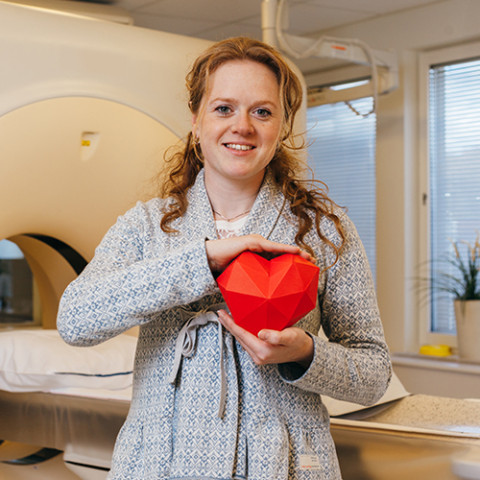Blog
08 November 2021
Beyond the pandemic – The future of radiology
The International Day of Radiology marks the discovery of X-rays by German mechanical engineer and physicist Wilhelm Conrad Röntgen on 8 November 1895.
Much has happened since then.
Radiology plays a crucial role in modern medicine. The evolution of radiology services has had a huge impact on our patient’s health, contributing to more accurate diagnoses, the development of minimal-access therapies, and better outcomes.
At Unilabs, we report and perform more than four million examinations every year – helping healthcare professionals reach the right diagnosis. We believe in subspecialisation – meaning that our medical experts can focus on exam types they are familiar and most comfortable with, leading to faster reporting, better results, and happier physicians.
During the Covid-19 pandemic, we saw an unprecedented change to radiology services. Elective radiology dropped significantly, replaced by emergency imaging to determine the severity of the virus’ impact on the human body. During this pandemic, we developed expertise in the imaging of viral disease – knowledge that has been shared worldwide.
Now, nearly all countries are facing a huge backlog of patients requiring diagnostic imaging. Current demand far outweighs the levels we saw in 2019. This increase in demand is spurring the expansion of teleradiology services and speeding up the adoption of innovative artificial intelligence technology.
Teleradiology can bring huge benefits to the health care system. During Covid, allowing our radiologists to work from home kept them safe, and protected valuable resources for our clients. Meanwhile, reporting for such a wide population allowed us to quickly develop critical mass in specialist areas – providing top quality healthcare to patients wherever they were.
In our pioneering follow-the-sun model, we were able to employ teleradiology across the hemispheres: for example, a night-time emergency scan in the UK could be immediately reported in the day by a teleradiologist in Australia, provides a better and safer service.
Teleradiology also creates extra capacity. Our radiologists are connected around the globe. They step in where there are gaps and can add specialist expertise to areas where it’s lacking. In a world where more radiologists are retiring than being trained, teleradiology can extend the career of older, more experienced radiologists.
Meanwhile, AI is starting to really prove its worth – increasing diagnostic accuracy and the efficiency of our systems. With volume demand outpacing the supply of specialists, it is all about increasing the reporting capacity of our scarce radiologists. At Unilabs, we believe in the power of Artificial Intelligence (AI) to free up time for our medical specialists by accelerating the identification of areas of interest and the execution of tedious, repetitive tasks. In the medium term, we also expect AI to take over entire quality runs (second reads) for individual modalities.
We have established a dedicated team to evaluate the plethora of AI products on the market and choose products which will most improve patient care. After stringent evaluation, we now have several AI products in place to help our radiologists.
For example, in our emergency section, AI now looks at CT examinations of the chest to look for blood clots, CT examinations of trauma patients to look for spinal fractures, and CT head examinations to look for bleeding of the brain. In our new low-dose CT thorax reporting for the NHS lung service, we are using AI detection of possible lung cancer lesions and automated reporting that meets the NHS standards.
AI will never replace radiologists, but it will make us better and improve our workflows, which will only benefit our patients. Where we are today is unrecognisable to where we were at the start of this century and with the rapid evolution of artificial intelligence, who can imagine where we will be tomorrow?
Author: Dr Gareth J Davies, TMC’s UK Medical Director and Head of Body Section Europe.

